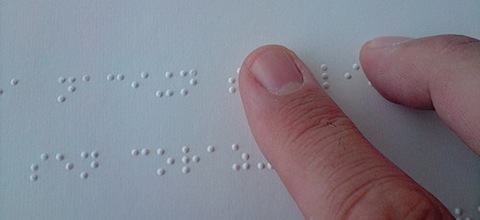I am sincerely grateful for all of the feedback I received (in various channels) about my last post. Below I list the questions I ended up asking during the first three interviews I conducted. Keep in mind that the interviews were much more like conversations than this somewhat sterile list of questions might imply.

- Please tell us a little about yourself.
- What is your experience today with using braille in everyday life?
- What do you remember about when you first started learning braille?
- What was the hardest thing about learning braille?
- Looking back now, what’s your opinion of the way you were taught braille?
- Today, when you read for pleasure, what kind of material do you read and how do you read it? (audio? braille?)
- Some say that listening to a book is not an example of literacy and that only by reading through braille is a person literate. What’s your opinion?
- With new technologies making it so easy to listen to books and other kinds of writing, is there a good reason to preserve braille and keep teaching people how to use it?
- Do braille readers have any advantages over sighted readers?
- Let’s turn now from reading to writing. How do you compose your writing? What tools do you use? How do you edit? Do you use a brailler?
- When you were a child, did you have any adult role models who were visually impaired or blind?
- Do you think it’s important for young people who are visually impaired or blind to have adult role models who are, too?
- As far as you know, are you a role model to any young people?
[Photo by Flickr user antonioxalonso. Licensed under Creative Commons.]

